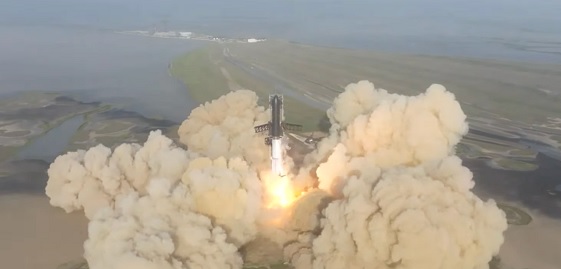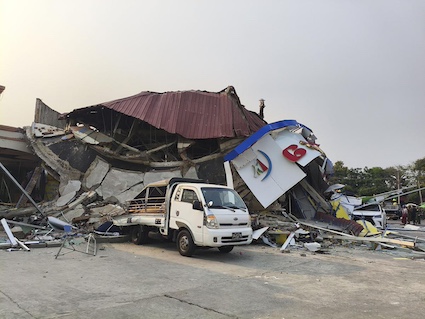- Islamabad
- 22.7°C
- Today ( Sunday, 20 April 2025)
- Home
- Space & Astronomy
- As Space Programs Thrive, Earth Grapples With Escalating Pollution Concerns
As Space Programs Thrive, Earth Grapples With Escalating Pollution Concerns
With the rapid advancement of space exploration and an increasing number of satellite launches, concerns about the environmental impact of space programs on Earth are gaining momentum. While the exploration of outer space is unlocking new frontiers of knowledge, the unintended consequences are evident in the form of pollution that these missions leave behind. Space Debris Accumulation: The primary contributor to pollution from space programs is the accumulation of space debris. Discarded rocket stages, defunct satellites, and fragments from previous missions continue to orbit the Earth, posing a threat to operational satellites and the International Space Station (ISS). Spacecraft Emissions: Rocket launches release substantial amounts of greenhouse gases and other pollutants into the Earth's atmosphere. The combustion of rocket propellants, particularly solid rocket fuels, contributes to the release of chlorine-based compounds that can deplete the ozone layer. Resource Extraction and Manufacturing: The production of spacecraft involves the extraction of raw materials, manufacturing processes, and energy consumption, all of which contribute to terrestrial pollution. The mining of rare minerals for advanced technologies in space equipment further adds to environmental degradation. Light Pollution from Satellites: The deployment of large constellations of satellites for global internet coverage has led to a surge in light pollution. These satellites reflect sunlight and, in turn, disrupt astronomical observations, impacting both amateur and professional astronomers. Environmental Concerns: Impact on Wildlife: Light pollution affects nocturnal animals, insects, and migratory birds, disrupting their natural behaviors and ecological patterns. Climate Implications: The release of greenhouse gases during rocket launches contributes to climate change, adding to the global carbon footprint. Mitigation Efforts: Space Debris Cleanup: Researchers and space agencies are exploring innovative solutions, including space debris removal technologies, to address the growing issue of orbital debris. Green Propulsion Technologies: Developing and implementing eco-friendly propulsion systems is crucial for reducing the environmental impact of rocket launches. Regulations and Guidelines: The establishment of international regulations and guidelines for responsible space activities is essential to ensure sustainable practices and minimize pollution. Conclusion: While space programs continue to inspire humanity with groundbreaking discoveries, it is imperative to address the environmental consequences of these endeavors. Sustainable practices, technological innovation, and international collaboration will play pivotal roles in mitigating the pollution caused by space programs, allowing us to explore the cosmos responsibly.
-
Australian lawmakers have implemented landmark legislation that prohibits the performance of the Nazi salute in public and bans the display or sale of Nazi hate symbols, including the swastika. The new laws, effective from Monday, also criminalize the act of glorifying or prai...
-
Australia is now home to the largest male specimen of the world's most venomous spider, the Sydney funnel-web spider. Discovered on the Central Coast, approximately 50 miles north of Sydney, the spider was initially handed over to a local hospital but has since found a new res...
Get Newsletter
Subscribe to our newsletter to get latest news, popular news and exclusive updates.


























Facebook Comments